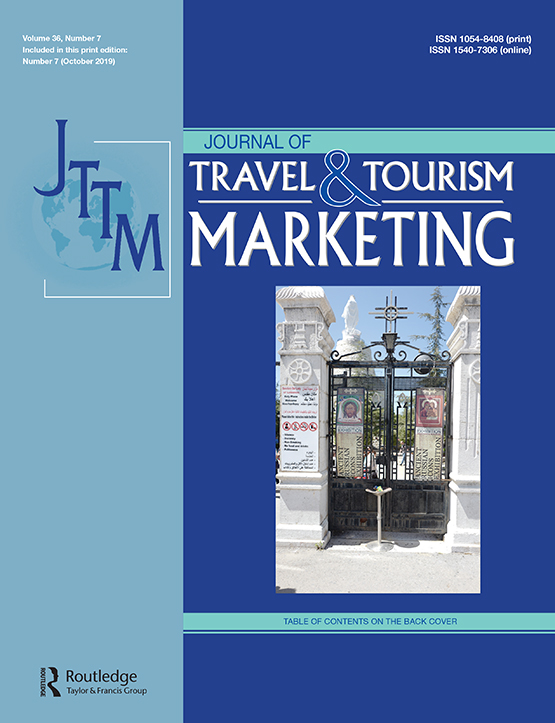复仇旅游:新冠肺炎后休闲旅游的怀旧与渴望
IF 9
2区 管理学
Q1 HOSPITALITY, LEISURE, SPORT & TOURISM
引用次数: 37
摘要
2019冠状病毒病大流行影响了消费者的心理健康和旅游业。次要证据表明这是一种报复性旅行现象。本研究从理论上和实证上证明,怀旧有助于消费者应对流行病带来的痛苦,并培养休闲旅游的欲望。根据刺激-机体-反应(SOR)框架,消费者对COVID-19严重程度的感知(刺激)引发怀旧(机体),从而增加休闲旅游的欲望(反应)。当通过营销传播(特别实验)操纵时,怀旧对旅行欲望的影响是强大的。本研究进一步解释了消费者避近动机系统与旅行者人格的交互作用下的旅游追求异质性。本文章由计算机程序翻译,如有差异,请以英文原文为准。
Revenge travel: nostalgia and desire for leisure travel post COVID-19
ABSTRACT The COVID-19 pandemic has hampered consumers’ psychological well-being and the travel industry. Secondary evidence suggests a revenge travel phenomenon. This study theorizes and empirically demonstrates that nostalgia helps consumers cope with pandemic distress and cultivates the desire for leisure travel. Drawing on the Stimulus-Organism-Response (SOR) framework, consumer perceived severity of COVID-19 (stimulus) triggers nostalgia (organism), which increases the desire for leisure travel (response). The effect of nostalgia on desire to travel is robust when manipulated via a marketing communication (ad-hoc experiment). This study further explains travel pursuit heterogeneity with the interaction of a consumer’s approach-avoidance motivation system and traveler personality.
求助全文
通过发布文献求助,成功后即可免费获取论文全文。
去求助
来源期刊

Journal of Travel & Tourism Marketing
HOSPITALITY, LEISURE, SPORT & TOURISM-
CiteScore
13.50
自引率
8.30%
发文量
25
期刊介绍:
The Journal of Travel & Tourism Marketing (JTTM) is a valuable platform for researchers and managers in the travel and tourism industry. It facilitates the exchange of ideas and provides updates on the latest developments in tourism. JTTM accepts submissions on various topics including marketing management practices, applied research studies, critical reviews, advancements in tourism marketing technologies, and the impact of business and government policies on travel and tourism marketing.
 求助内容:
求助内容: 应助结果提醒方式:
应助结果提醒方式:


